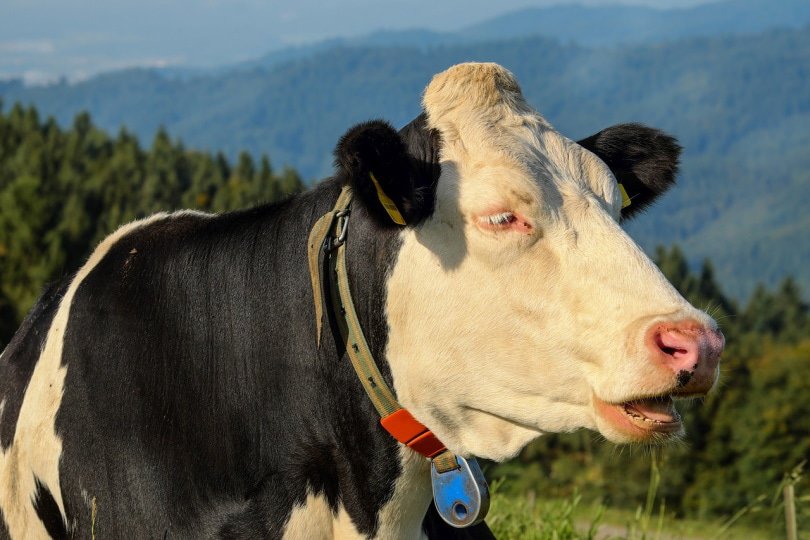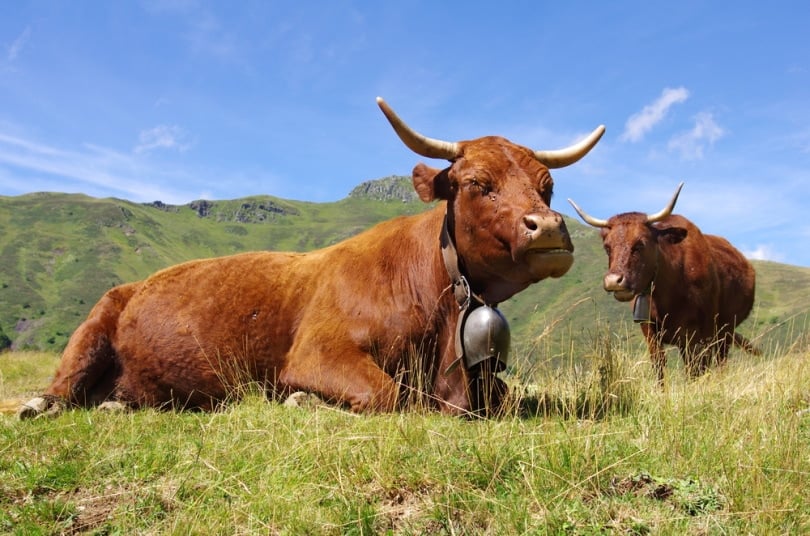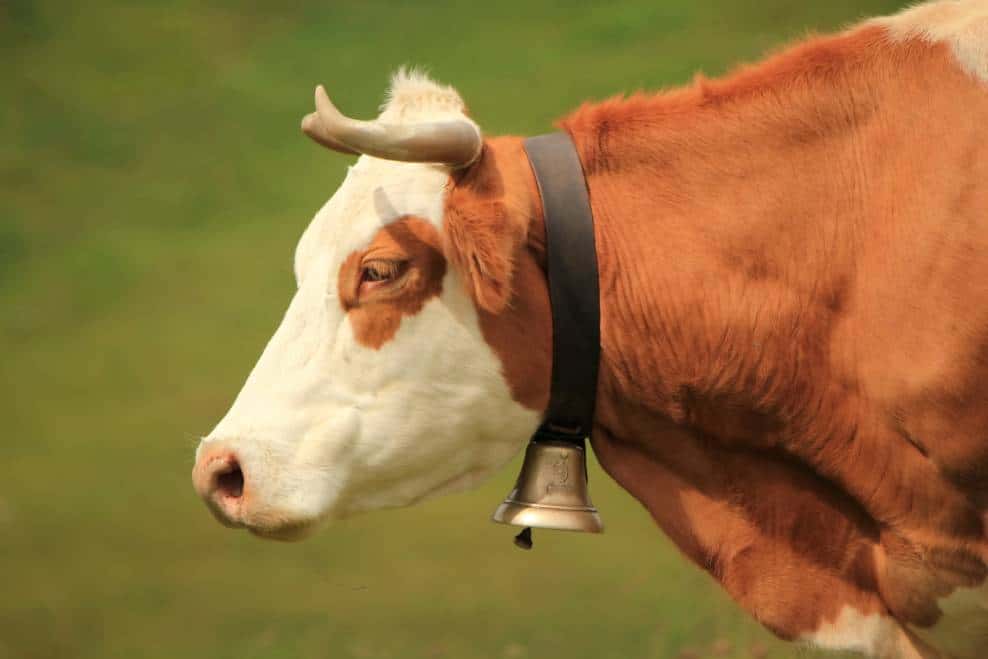Have you ever seen a cow with a big gold bell around her neck? Cows wear bells all the time in drawings, and sometimes in real life. Most cows don’t wear bells in the US, but in other parts of the world, it is common. Ranchers put bells on their cows for lots of reasons, but the most common reason is to stop cows from getting lost and let others know that the cow belongs to someone.
 Cowbell History and Traditions
Cowbell History and Traditions
Cowbells go back thousands of years to cultures all over the world. Bells were originally made of wood or pottery, but later on, farmers put metal bells around their cows’ necks.
The modern association between cows and bells mostly comes from Swiss traditions. Farmers in Switzerland used large, clanging cowbells to keep track of their herds in hilly terrain. Traditionally, large bells were used each spring when cows were herded up the mountains into their summer pastures. These large bells were symbols of good luck. They reminded farmers of church bells back home.

Reasons for Cowbells
Grass-fed cows need a lot of space to graze, with herds sometimes stretching out over miles of land. This makes it hard for ranchers to keep track of cows by sight alone. In addition, many herds make use of land that is too rugged for crop farming. Alpine herds, like the herds of cows in Switzerland, graze on the slopes of steep mountains during the summer. This rough terrain makes it even easier for a cow to get lost. A cowbell produces loud ringing as its cow moves, making it easier to find stragglers and rescue cows from danger.
There’s another reason many farmers use cowbells. If a cow does manage to get away from the herd, the presence of a cowbell makes it clear that the cow belongs to someone. The style of the bell might even help the owner identify it!
Today, cowbells are also partly ornamental. Although ear tags, GPS trackers, and other technology could replace cowbells, they are such a familiar sight that many ranchers prefer the old-fashioned way.
Are Cowbells Bad for Cows?
Despite the long history of wearing cowbells, some people worry that cowbells negatively affect cows, either because of the noise or the weight. If not properly fitted, the collar that bells are attached to can cause chafing and soreness. A study in 2016 of about 100 cows suggested that cows wearing bells were more likely to have hearing loss. It also suggested that cows wearing cowbells don’t chew their food for as long.
Although cowbells have their opponents, cows become accustomed to bells quickly. Within a few days of being fitted with a bell, most cows ignore the noise entirely and move and graze like normal. The jury is still out on whether cows are bothered by the bells, but thousands of years of bell-wearing shows it isn’t a major hardship for the cow.

 Other Animals that Wear Bells
Other Animals that Wear Bells
Cowbells are most common on cows, but other animals wear similar bells. Some kinds of livestock, like sheep and goats, might wear a bell for the same reason that cows do. Today, some pets wear bells for different reasons. Cats and other small predators are sometimes given collars with bells to stop them from hunting. The jingling of a bell will alert birds and small animals that a cat is nearby.
Even though not many cows wear bells today, cowbells are still part of many traditions. As a practical way to keep track of animals or a good luck charm, cowbells have been used for thousands of years. Next time you see a picture of a cow wearing a bell, you can tell your friends why.
Featured Image Credit: Elenarts, Shutterstock
